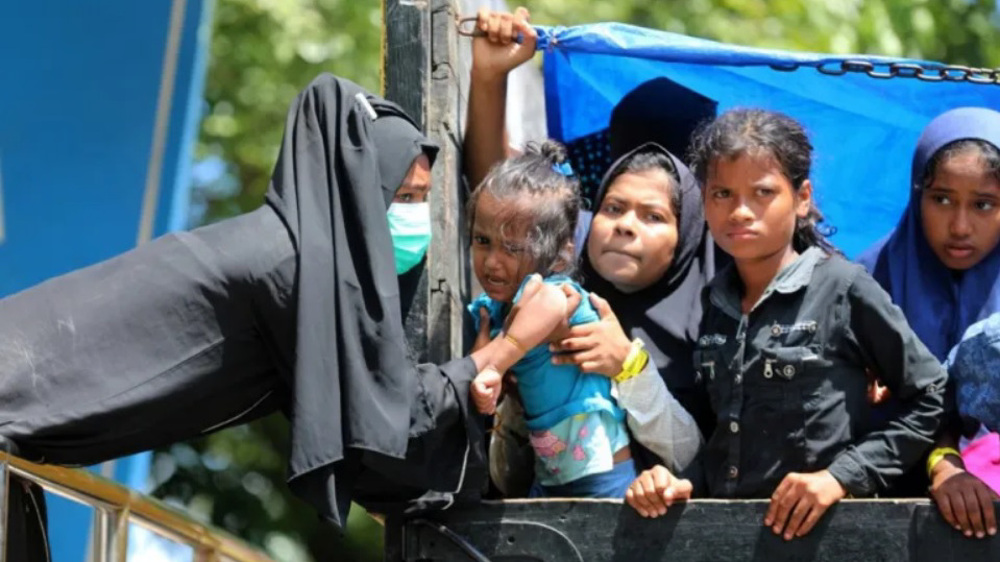Leaders of fast-growing SE Asia economies discuss global trade at 35th ASEAN summit
The 35th summit of the Association of Southeast Asian Nations (ASEAN) and related meetings are underway in Thailand’s capital of Bangkok, with a focus on multilateralism and connectivity.
The Sunday session commenced with a speech by Thai Prime Minister Prayut Chan-o-cha, who called for supporting the China-backed Regional Comprehensive Economic Partnership (RCEP) in order to create a prosperous and sustainable region.
“We should continue to work to conclude negations on RCEP within this year to stimulate economic growth as well as trade and investment,” Chan-o-cha said.
The Thai premier also called on the member states to continue their support for multilateral trade system within the purview of the World Trade Organization as well as regional and sub-regional economic cooperation frameworks.
“The ASEAN and the world today are facing increased challenges including those to global economic growth and multilateralism, and close partnership and friendship will be crucial to enabling the region to tackle and overcome these challenges,” Chan-o-cha said.
“There is a need to promote a seamless ASEAN through the ‘Connecting the Connectivities’ approach, both within the ASEAN region and beyond, which includes physical, people-to-people, financial and digital connectivity,” he added.
The Thai prime minister further noted that the meetings over the next two days would be an important opportunity for member states to demonstrate the partnership and friendship between the ASEAN and the world community and work to create a collective approach based on ASEAN centrality and its strength for dealing with regional and global challenges.
Modi hails India-ASEAN ties
In another speech delivered on Sunday, Indian Prime Minister Narendra Modi praised the strong bond between New Delhi and the ASEAN group as he co-chaired a joint summit in Bangkok.
“ASEAN is at the very core of our Act East Policy and will always be so. An integrated, cohesive and economically developing ASEAN serves India's core interests,” Modi said.
“Our aim is to have a great increase in the mobility of people for studies, research, trade, and tourism,” he added.
Modi also praised the hospitality of the current ASEAN presidency, Thailand, and welcomed Vietnam as the next.
China ready to work with ASEAN for South China Sea peace
In a meeting with leaders from the ASEAN group on Sunday, Chinese Prime Minister Li Keqiang expressed Beijing’s readiness to work with Southeast Asian countries for long-term peace and stability in the South China Sea, which has been at the center of a territorial dispute between China and its neighbors.
Li also cited progress on a long-awaited South China Sea code of conduct, which is to be completed within the next three year.
A legally binding code has long been a goal for ASEAN members as China’s maritime claims in the South China Sea are rejected by several members of the group.
The three-day ASEAN summit in Bangkok closes Monday, with leaders expected to issue a joint statement that will likely include a section on the South China Sea.
Established in 1967, the ASEAN group is comprised of Brunei, Cambodia, Indonesia, Laos, Malaysia, Myanmar, the Philippines, Singapore, Thailand and Vietnam.
Heads of 10 ASEAN countries and six of its dialogue partners — namely Australia, China, India, Japan, South Korea and New Zealand — are scheduled to meet on November 4 for their third RCEP summit and the closing ceremony.
The 16 countries account for a third of global gross domestic product and nearly half the world's population.
China proposed the RCEP shortly after US President Donald Trump pulled the US from the Trans-Pacific Partnership (TPP) — which would have been the world’s largest trade deal.
The pact, which will be the world’s biggest free trade deal, is expected to cover about a quarter of the world’s exports.
It is also aimed at breaking down trade barriers and promote investment to help emerging economies catch up with the rest of the world.
Iranian Embassy condemns Israeli airstrikes in southern Lebanon
10 foreign spy agencies involved in plot to destabilize Iran: IRGC intelligence
VIDEO | Gazans pay tribute to Palestinian artists killed by Israel, honor their families
Minneapolis murders by ICE – backed by Trump – push US to the brink as protests intensify
Zelensky claims US security pact '100% ready' as war continues
Lebanese journalist targeted for exposing President Aoun’s pro-US, anti-resistance agenda
Wave of Israeli attacks target southern Lebanon in latest ceasefire violation
Iranian researchers develop indigenous software for precise satellite positioning











 This makes it easy to access the Press TV website
This makes it easy to access the Press TV website